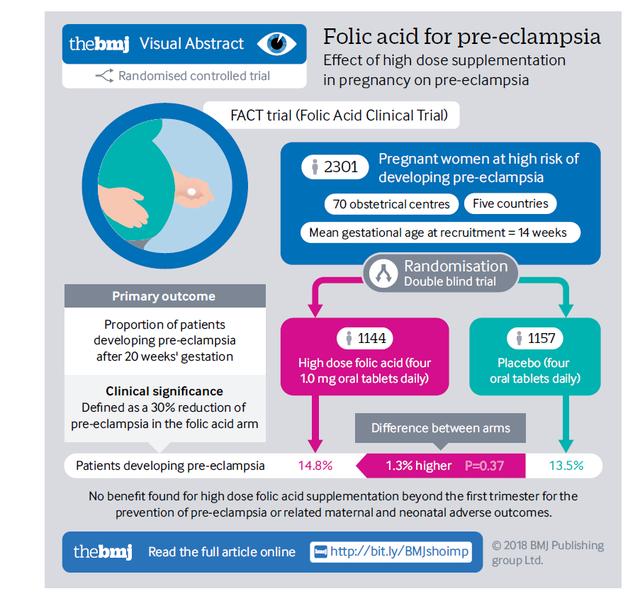Preeclampsia, a complex disorder unique to pregnancy, is characterized by high blood pressure and proteinuria, typically emerging after the 20th week of gestation. It poses significant risks to both the mother and the fetus. While the exact etiology remains elusive, it is believed to involve genetic, immunological, and endothelial dysfunction factors.

MTHFR and Its Role in Preeclampsia
Methylenetetrahydrofolate Reductase (MTHFR) is a pivotal enzyme in folate metabolism, converting synthetic folate derivatives into absorbable 6S-5-methyltetrahydrofolate. The C677T polymorphism in the MTHFR gene, which involves the substitution of cytosine (C) with thymine (T) at the 677th nucleotide, can diminish enzyme activity. This reduction can impede the conversion of 6S-5-methyltetrahydrofolate, affecting homocysteine metabolism and potentially increasing the risk of cardiovascular diseases. In China, approximately 78.4% of the population is affected by MTHFR 677 folate metabolism disorders.
Recent research indicates that the MTHFR C677T polymorphism may be linked to the development of preeclampsia.

MTHFR Polymorphism and Preeclampsia: A Global Perspective
A 2013 meta-analysis, synthesizing data from 51 case-control studies and encompassing diverse ethnic groups including Caucasians, Latin Americans, East Asians, South Asians, and Africans, investigated the link between the MTHFR C677T polymorphism and preeclampsia risk. The study involved 6,403 patients and 11,346 controls.

Findings revealed a significant association between the MTHFR C677T polymorphism and preeclampsia risk in the general population, particularly among Caucasians and East Asians, with no significant link observed in Latin American, South Asian, and African populations.
.

Naturalization Folate and Preeclampsia Prevention
In contrast to synthetic folic acid, Naturalization Folate (active folate, 6S-5-methyltetrahydrofolate, 5-MTHF) can be directly absorbed, bypassing the limitations of MTHFR enzyme activity. This enhancement in folate levels and reduction in homocysteine (HCY) can aid in preeclampsia prevention. A clinical controlled study conducted in Italy from 2009 to 2013 demonstrated that pregnant women supplemented with 5-MTHF experienced significantly lower rates of recurrent preeclampsia, severe preeclampsia, and preterm preeclampsia.

Conclusion
Preeclampsia is a grave pregnancy complication with a multifactorial pathogenesis. The C677T polymorphism of the MTHFR gene is associated with an increased risk of preeclampsia, especially in certain ethnic groups. Naturalization folate (5-MTHF), as an active form of folate, can circumvent the constraints of the MTHFR enzyme and be directly utilized by the body, offering a potential preventative measure against preeclampsia. For pregnant women at risk, supplementation with natural folate may be an effective strategy.

References:
1. Wang XM, Wu HY, Qiu XJ. Methylenetetrahydrofolate Reductase (MTHFR) Gene C677T Polymorphism and Risk of Preeclampsia: An Updated Meta-analysis Based on 51 Studies. Archives of Medical Research 44 (2013) 159-168.
2. Saccone G, Sarno L, Roman A, Donadono V, Maruotti GM, Martinelli P. 5-Methyl-tetrahydrofolate in prevention of recurrent preeclampsia. J Matern Fetal Neonatal Med. 2015; DOI: 10.3109/14767058.2015.1023189.
3. Lian Zenlin, Liu Kang, Gu Jinhua, Cheng Yongzhi, et al. Biological characteristics and applications of folate and 5-methyltetrahydrofolate. Food Additives in China, Issue 2, 2022.
4. Lamers Y, Prinz-Langenohl R, Braumswig S, Pietrzik K. Red blood cell folate concentrations increase more after supplementation with [6S]-5-methyltetrahydrofolate than with folic acid in women of childbearing age. Am J Clin Nutr. 2006;84:156-161.

 Español
Español Português
Português  русский
русский  Français
Français  日本語
日本語  Deutsch
Deutsch  tiếng Việt
tiếng Việt  Italiano
Italiano  Nederlands
Nederlands  ภาษาไทย
ภาษาไทย  Polski
Polski  한국어
한국어  Svenska
Svenska  magyar
magyar  Malay
Malay  বাংলা ভাষার
বাংলা ভাষার  Dansk
Dansk  Suomi
Suomi  हिन्दी
हिन्दी  Pilipino
Pilipino  Türkçe
Türkçe  Gaeilge
Gaeilge  العربية
العربية  Indonesia
Indonesia  Norsk
Norsk  تمل
تمل  český
český  ελληνικά
ελληνικά  український
український  Javanese
Javanese  فارسی
فارسی  தமிழ்
தமிழ்  తెలుగు
తెలుగు  नेपाली
नेपाली  Burmese
Burmese  български
български  ລາວ
ລາວ  Latine
Latine  Қазақша
Қазақша  Euskal
Euskal  Azərbaycan
Azərbaycan  Slovenský jazyk
Slovenský jazyk  Македонски
Македонски  Lietuvos
Lietuvos  Eesti Keel
Eesti Keel  Română
Română  Slovenski
Slovenski  मराठी
मराठी  Srpski језик
Srpski језик 








 Online Service
Online Service